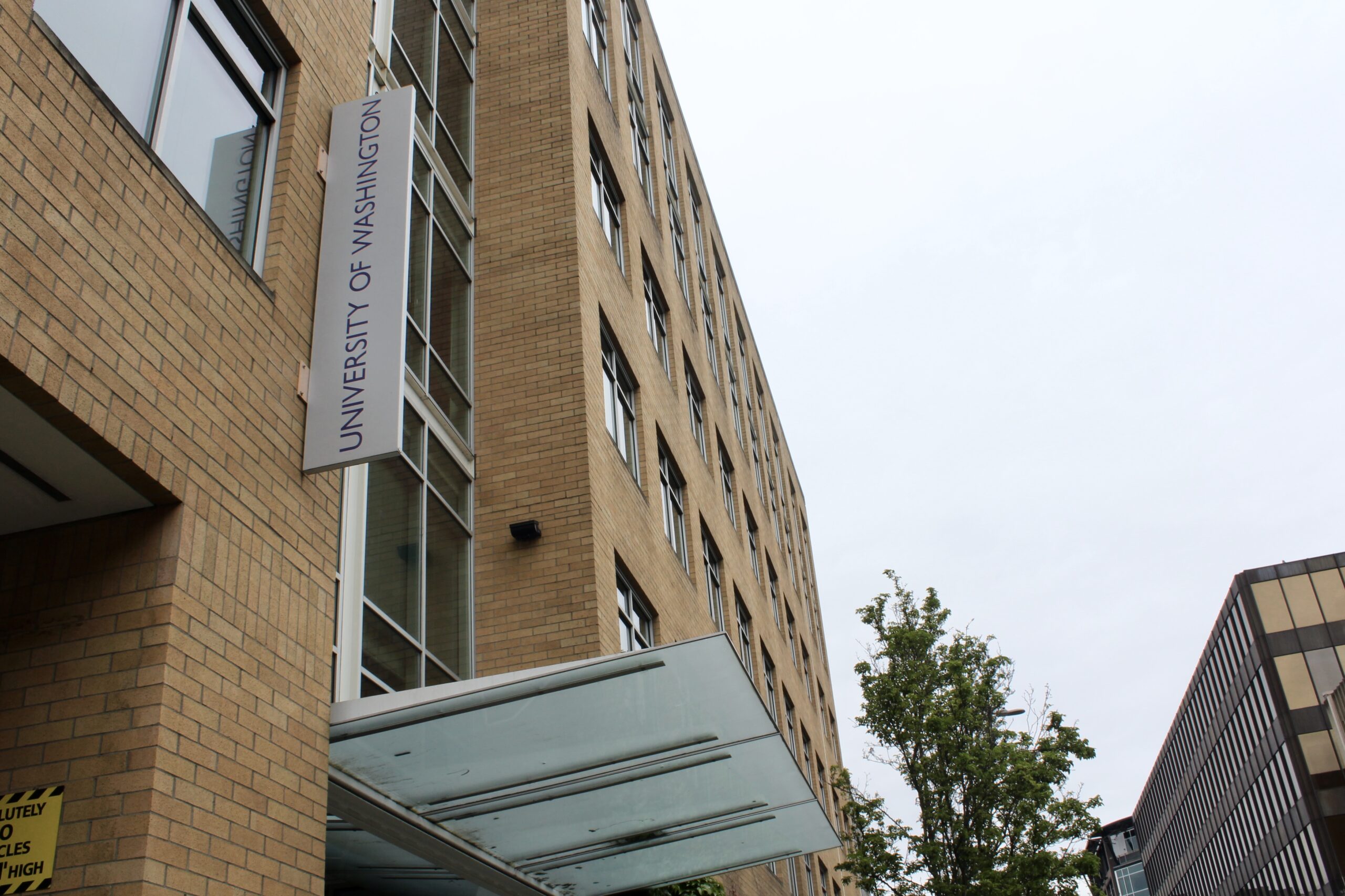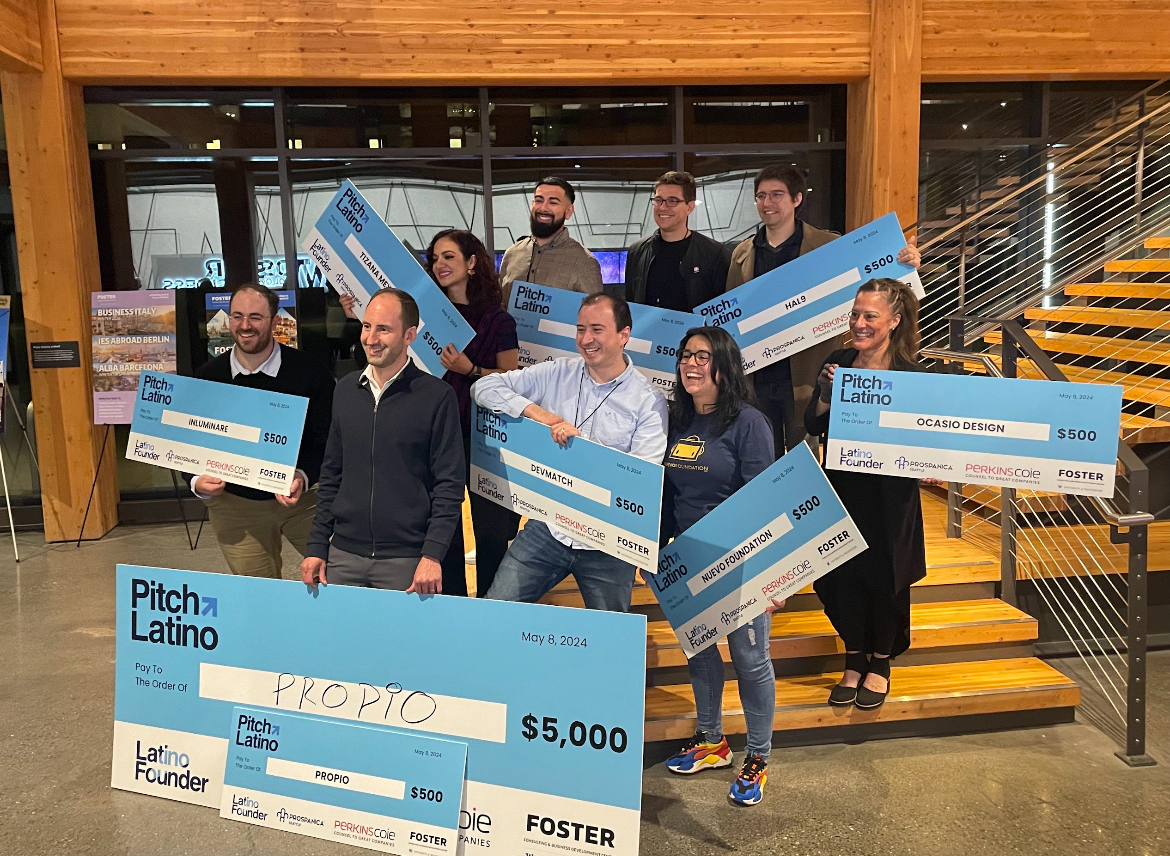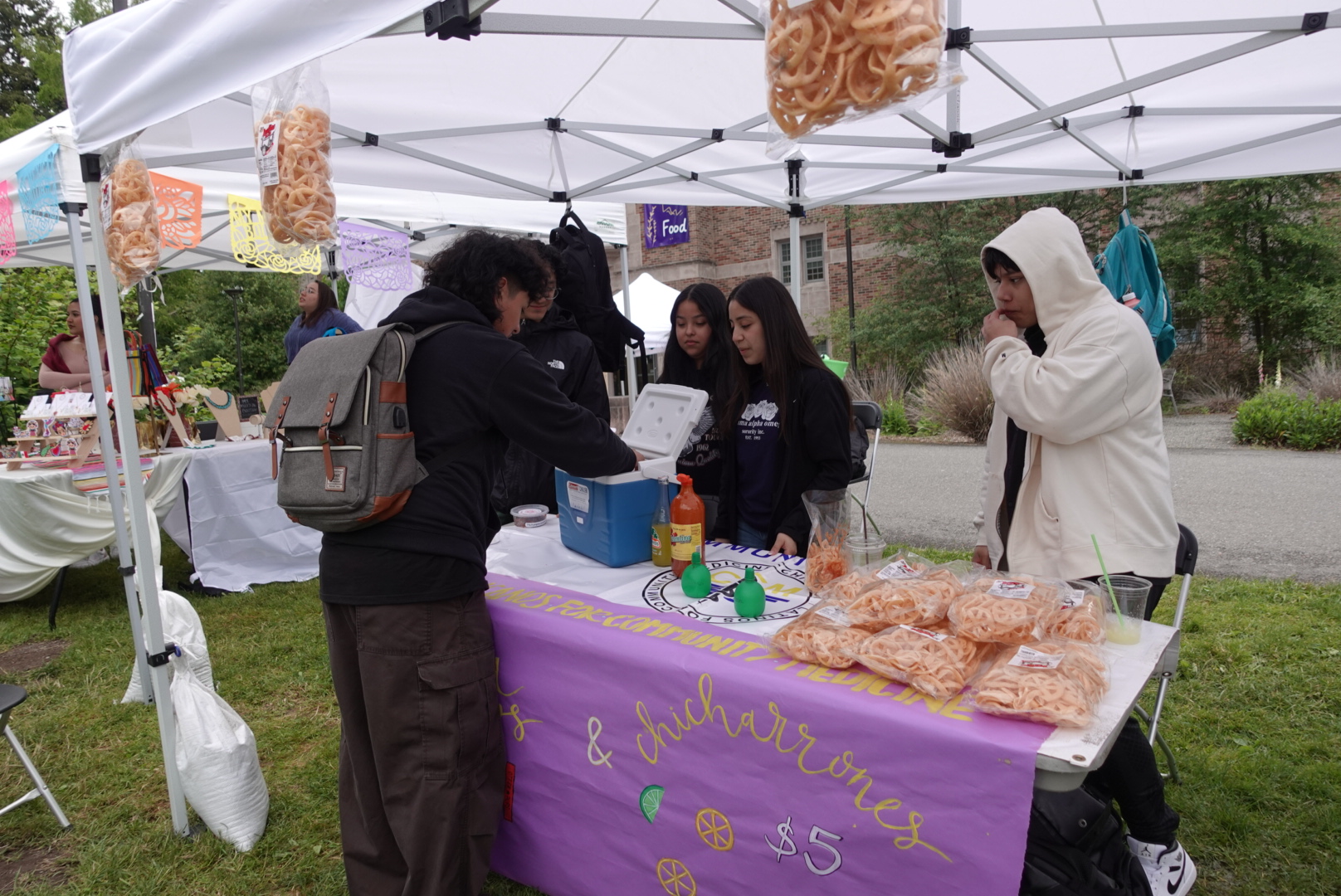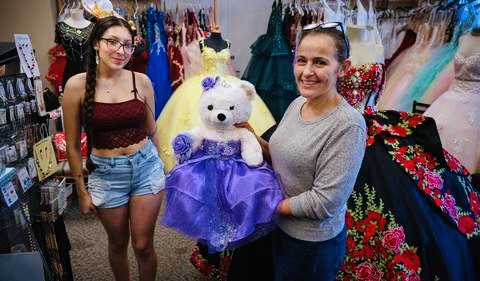In the early days of the COVID-19 pandemic, Dr. Leo Morales knew that the most vulnerable communities, particularly Latinx communities, would be the hardest hit by the virus.
With higher rates of chronic conditions, less access to quality healthcare, and barriers to vaccination, Latinx populations saw some of the highest rates of infection and mortality as a result of COVID-19.
More than four years after the COVID pandemic began, 64% of Americans say they consider it over, and funding for programs such as free vaccination and testing has dwindled. But amid these shifting attitudes, data collected by UW’s Latino Center for Health shows the virus is still impacting communities that are often left with inadequate resources.
As COVID-19 spread worldwide, Morales, co-director of the LCH, says doctors and researchers noticed that some people weren’t getting better, with lingering symptoms like chronic fatigue, brain fog, and weakness. By spring 2020, this condition got a name: long COVID.
Long COVID-19 is a complex condition in which symptoms linger for at least three months after a COVID-19 infection. Although researchers don’t fully understand long COVID-19, Morales says research suggests it’s more likely to develop in those who are unvaccinated, have chronic health issues, or have had COVID-19 multiple times.
But with little research focused on Latinx communities, Morales and his team are seeking to understand how those who had been among the hardest hit by the virus are experiencing the effects months after infection.
“High rates of infection and high rates of hospitalization and mortality all suggested that long COVID was a bigger problem than what was being understood in this community,” Morales said.
Last year, the LCH partnered with the Allen Institute, the biomedical research organization; the UW Medical Center’s post-COVID clinic; and several community health centers to survey Latinos across Washington who had been infected with the virus, hoping to understand how they were experiencing long COVID.
The data collected by researchers reveals high rates of long COVID among Latinx communities in Washington, with significant impacts on physical and mental health and economic well-being.
Of the 1,546 people who took the survey, 41% say they have symptoms of long COVID. Morales says this matches up with 2022 data from the U.S. Census Bureau, which found that 35.9% of Hispanic adults had long COVID, the highest rate among all ethnic and racial groups surveyed.

”It’s always concerning when you see high numbers of people reporting persistent symptoms,” said Allen Institute biostatistician Dr. Samir Rachid Zaim. “But … the literature keeps confirming what we are observing.”
Many people with long COVID say they’re feeling worse after their initial infection, experiencing common symptoms like fatigue, muscle pain, anxiety, and trouble sleeping. Among these individuals, about 29% say their health is now “worse” or “much worse.” And over a third of those with long COVID are “very worried” about losing their job if they were to miss two days of work due to symptoms.
To Morales, these findings are especially concerning given that middle-aged adults and women reported higher rates of long COVID.
“This is a particularly important time in life, you’re raising a family, you’re working … and for a parent to be suffering with these debilitating symptoms could have huge repercussions not only in the family but in the community,” Morales said. “When that kind of thing happens to you, it’s devastating.”
Researchers say the data indicates a need for more access to resources and care as Latinos report significant changes to their health post-COVID.
“We’re not delivering the care that people need at the moment,” said Troy Torgerson, director for experimental immunology at the Allen Institute.
The LCH has presented its findings to the Washington State Legislature, recommending greater community education on long COVID, restored funding for free vaccine programs, such as the Care-a-Van mobile health program, expanded access to multilingual providers, as well as greater investments in clinical care for the treatment of long COVID.
The University of Washington has been operating a post-COVID rehabilitation clinic in Seattle since 2020, but its long wait list and location pose barriers to many people seeking care.
“If the premier long COVID clinic that has experts trained to treat long COVID is in the middle of the city at Harborview and someone is living in Auburn or in Federal Way…. how can they take a day off to come into the city to see a provider … and yet still provide for their family?” Torgerson said.
Research done in partnership between the Allen Institute and Fred Hutch has shed some light on what’s behind the condition. Torgerson says their research supports the idea that viral particles linger in the body after an infection, creating chronic inflammation that causes people’s symptoms.
But with pharmaceutical treatments still experimental and largely unsuccessful, time and lifestyle changes seem to be the most effective interventions. Torgerson says preventing infection through masking and handwashing is the best way to reduce the odds of experiencing prolonged symptoms.
The researchers said they will keep studying the condition and share their findings with the state Legislature.
“It’s clear … how big of a problem long COVID is and continues to be,” Morales said. “I think more work needs to be done to better understand who is continuing to have problems and how, if at all, are they being helped.”
Cover Photo: The Latino Center for Health is housed in the Roosevelt Commons in the University District. The center opened in 2014 and focuses on research promoting the health of Latinx communities across Washington. (Photo by Scarlet Hansen)
Publisher’s Notes: Washington Latino News and a class in the Journalism and Public Interest Communication program at the University of Washington are partners in best serving the Hispanic and Latino communities.



